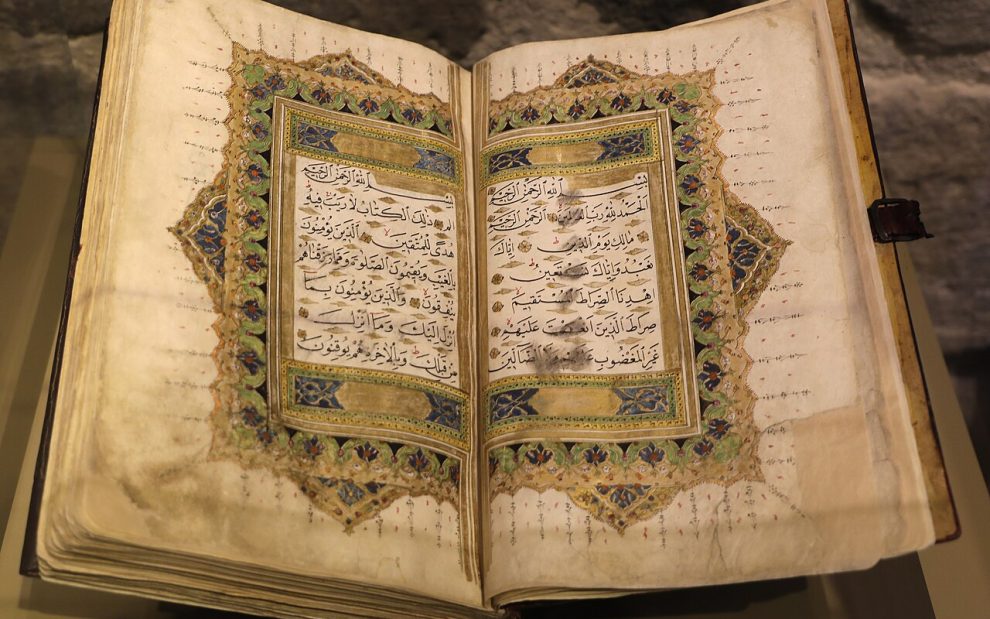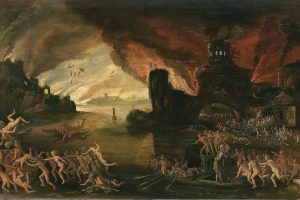My Muslim upbringing has deeply influenced my personal and academic life. Through my journey, I’ve discovered that while my values are rooted in my faith, engaging with other traditions has significantly broadened my perspective. This mutual learning process not only enriches personal understanding but also fosters a culture of respect and empathy across different communities.
I was born and raised in Germany as the daughter of Kurdish Muslim immigrants from Türkiye. Today, about six million Muslims live in Germany. It is the second largest religious community. I saw it as a privilege to count German, Turkish, Moroccan, Tunisian, Algerian, Egyptian, Syrian, Lebanese, Afghan, Bosnian, Albanian, and many other Muslims as my friends. It was a glimpse into the world with its many cultures, flavors, and languages. They each brought beauty into my life and enriched my being in so many ways. We played together, studied together, prayed together, and, yes, even argued together.
Embracing difference—as complicated as it might naturally be at times—was intrinsic to my upbringing. This experience with diversity has prepared me with important life skills to approach people outside of my own Muslim community with compassion, openness, curiosity, and humility. Now, living in the United States I continue to be part of the most ethnically diverse, multi-generational, and dynamic community of around two billion Muslims around the world. I make a conscious effort in my daily life to extend those social connections into non-Muslim circles. In that, I am guided by my love and wisdom of the timeless Islamic tradition.
Throughout my studies and travels in countries like Türkiye, Malaysia, Egypt, Syria, and Jordan, the archeological evidence of historic churches, synagogues, and temples on the ground was sufficient to tell the story of a Muslim people who had drawn on their rich religious resources to live mostly amicably with different religious communities. As I visited those religious houses of worship I was reminded of one particular verse in the Quran: “Those who have been driven unjustly from their homes only for saying, ‘Our Lord is God.’ If God did not repel some people by means of others, many monasteries, churches, synagogues, and mosques, where God’s name is much invoked, would have been destroyed. God is sure to help those who help His cause—God is strong and mighty.” Muslim theologian Bediüzzaman Said Nursi argues that in times of Muslim religious advancement and cultural creativity, other communities equally flourished. Most recently Jewish historian David J. Wasserstein has put forward the same argument with his thesis that “Islam saved Jewry.”
The Quran in particular—a source of guidance and illumination for Muslim life—has much to say on how to embrace pluralism while still being rooted authentically in one’s own tradition.
In the spirit of learning from one another, here are three Quranic concepts that guide my interreligious life and encourage social connection:
The Primordial Covenant
The Quran states that all human souls—no exceptions here—were gathered together in front of God in primordial time before their life on Earth. Humankind bore witness to God’s existence and entered into a sacred covenant with their Creator and with each other: “When your Lord took out the offspring from the loins of the Children of Adam and made them bear witness about themselves, He said, ‘Am I not your Lord?’ and they replied, ‘Yes, we bear witness.’ So you cannot say on the Day of Resurrection, ‘We were not aware of this,’” (Quran 7:172). To honor this sacred social contract means to remember that we each belong to this one human family and that we are encouraged to cultivate relationships that affirm the fundamental dignity and worth of every human being. This truth is captured beautifully by Imam Ali’s saying that, “People are of two kinds: either my siblings in faith or my equals in humanity.”
The Divine Spirit
The Quran upholds the value, honor, and worth bestowed on humans by stressing time and again that God is personally involved with the creation of the human being. Furthermore, the Quran mentions frequently that God shared a divine piece with humanity—the spirit (rūḥ). What is clear is that every human being carries the divine imprint in them. “Your Lord said to the angels, ‘Indeed, I will create a human being from clay. When I have shaped him and breathed (nafakhtu) from My Spirit (min rūḥī) into him, bow down before him’”(Quran 38:71–72). This Quranic description stresses the great honor given to humankind. God shares something with humanity. To honor God is to honor the human being.
Difference and Diversity is God’s Will
I majored in German literature because of my love of it. I delight in German chocolate, bread, and pastry. I am drawn to the beauty and richness of my Kurdish and Turkish language and heritage. The United States with its rich fabric of cultures and religions and its spirit of creativity and innovation has become another place of constant inspiration and growth. Borders, territories, and constructed nation states do not capture the depth and breadth of my transnational and vast identity. I am not simply an earthly, embodied being. I am more. As noted earlier, I have a spiritual essence and celestial origin as well. Therefore, I am home in the Quranic understanding that all languages and colors are signs of God expressing His expansive compassion, beauty, and creativity: “Another of His signs is the creation of the heavens and earth, and the diversity of your languages and colors. There truly are signs in this for those who know”(Quran 30:22).
I fully embrace that difference and diversity are willed by God’s design. To honor it means to engage it and be open to transformation and change. “O humankind! Indeed, We created you from a single male and a single female, and made you into races and tribes so that you may get to know one another. Surely the most noble of you in the sight of God is the most righteous among you. God is truly All-Knowing, All-Aware” (Quran 49:13). I am a traveler in this world. We all are. God is my home. To Him we will return. It is in His sacred universe of thought in which I truly belong.
My experiences have taught me the importance of staying true to my values while remaining open to others. Engaging with and learning from one another not only enriches our personal lives but also fosters a greater sense of community and mutual respect.
Image: Wikimedia Commons/Francesco Bini (CC BY-SA 4.0)















Add comment